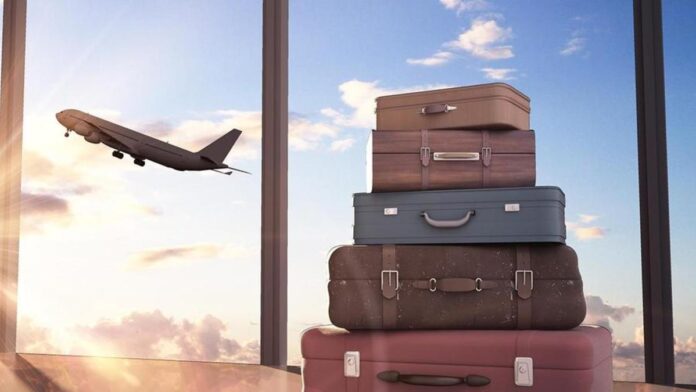As any frequent traveler will say, just about any trip via air, rail, boat, or even car is a risky proposition, especially at a time like Thanksgiving when millions of Americans will be heading home – or away from home – for the holidays.
Over 43% of adult Americans will be packing a bag and heading out on Thanksgiving, according to the travel platform Vacationer.
That amounts to 112 million wanderlust-minded people clustered together at airports, rail stations, and roadways.
What could go wrong, right?
Myth-Busting Tips to Make Travel Easier
When Americans do hit the friendly skies (or rail, roads, and waterways) next week, recognize that all is not what it seems with holiday travel.
There are an abundance of travel-related myths that, when you’re aware of them and act accordingly, can save you time, anxiety, and money.
Travel experts know this and offer some of their best “debunked” travel myths and what that can mean for your Thanksgiving week excursion. Here are their best tips.
The Myth: Take the first flight of the day. Conventional wisdom is that the first flight of the day is the best one to choose when you travel.
Maybe not.
That early wake-up call at the airport assumes you won’t have delays, the aircraft will be clean, and that morning travel tends to be less affected by thunderstorms and other weather events, which usually happen as the atmosphere warms or changes during the day.
Since the first flight of today is the last flight of yesterday, that means the airliner must be inspected and cleaned, and crew protocols on rest times between flights must be accommodated.
Any or all of those “first flight” issues could easily cause delays.
The size of the airport matters, too when choosing a flight time.
“Taking the first flight of the day makes sense out of hub airports, but when departing from a smaller regional airport, that second flight carries with it less risk of delays,” said University of Illinois computer science professor Sheldon H. Jacobson, Ph.D. “It’s often best to take the second flight of the day from these smaller airports, as long as that flight is in the morning.”
That’s often because the flight crew at that hub airport scheduled for the first flight of the day was the same crew that arrived the day before as the last flight of the day. “If there were weather delays or other disruptions the day before, flight crews may push up against their FAA-imposed flight hour limitations, causing delays in the morning,” Jacobson noted.
The Myth: Travel is easier on a holiday date. The fact is, airlines have been severely impacted this year by staff shortages and cancellations, and that shortage seeps into every travel day.
“Although industry group Airlines for America says carriers are pledging to hire more workers to handle what is promising to be an incredibly busy holiday season this year, flying on Thanksgiving or Christmas this might not be easier,” said insurance industry Squaremouth travel expert Joe Cortez. “Traditionally speaking, Thanksgiving is a lighter day compared to Christmas for travel but travelers shouldn’t be planning their trips for the holiday dates,”
Instead, consider making travel plans well before the holiday, or well after. “For example: Instead of traveling on Christmas, the week after the holiday is usually less congested for airlines, airports, and travelers,” Cortez said.
The Myth: If severe weather cancels or delays my flight, the airlines will take care of your family.
“Under an airline’s contract of carriage and federal law, carriers must get travelers to their final destination,” Cortez told TheStreet. “However, that may be severely limited if a storm grounds your flight.”
According to the U.S. Department of Transportation, some discount carriers don’t offer to rebook on partner airlines for canceled or delayed flights.
“Moreover, if a storm or other uncontrollable irregular operation cancels your flight, your airline may not provide meal vouchers or complimentary hotel rooms,” Cortez added. “Before you travel, be sure to understand if the weather could be a factor in your trip, and consider purchasing a travel insurance plan that will provide benefits for trip delay or interruption.”
The Myth: Everything is always more expensive during holidays.
“This is still true in a general sense because of supply and demand, but large cities are still recovering from the pandemic and many hotels and airlines are still offering discounts,” said HotelPlanner.com chief communications officer Philip Ballard. “That’s especially the case for extended stays of five days or more to make up for the lack of corporate and business travel, which has not fully recovered.”
Traveling overseas is always more expensive, but not to Europe this year.
“Millions of Americans are flocking to Europe because of the very favorable foreign exchange rate,” Ballard noted. “Americans should take advantage of the weak British pound and Euro and consider European holiday trips this year. The value of your dollar will go much further.”
The Myth: Wait until the last minute to grab a good holiday travel deal. Booking your tickets last minute is a common habit among travelers, but it’s not ideal during the holiday season.
“Last-minute deals can definitely be found, but during the busy holiday season, waiting too long could lead to missing out on preferred flights or routing,” said Priceline chief product officer Kevin Heery.
This holiday season, airfare costs are currently up 15% domestically and 20% internationally versus last year, Heery noted.
“If you’re traveling by air and also need hotel accommodations or a rental car, bundling your different travel reservations together can potentially save you hundreds of dollars as opposed to booking separately,” he told TheStreet. “Priceline customers who book their flight and hotel together save an average of $240.”













